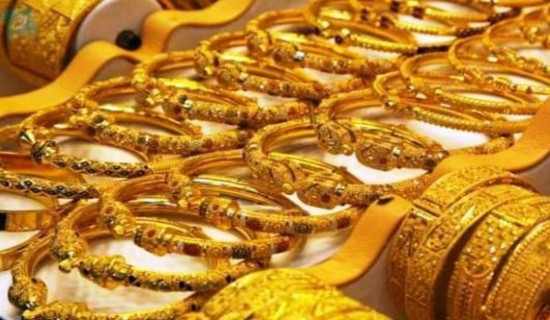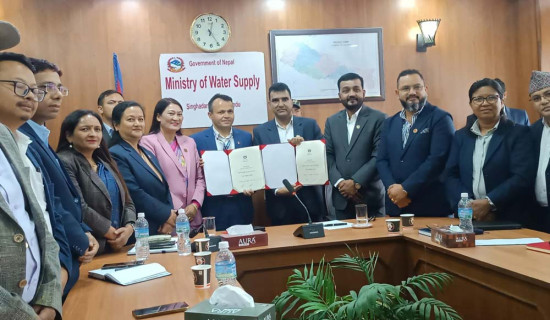- Friday, 9 May 2025
Afghanistan Faces Gender Apartheid
With the resurgence of the Taliban in Afghanistan since 2021, there are regular news in several global media outlets about the dire conditions of the Afghan people, but especially about the human rights violations of the Afghan women and girls. Various international bodies and feminist organisations have appealed to the governments all over the world to increase pressure on the Taliban to stop the oppression of women. The Taliban refuse to accept these facts, but instead argue that they are introducing measures to defend the human rights of their people.
Considering the women’s and girls' ongoing challenges in Afghanistan, the South Asia Peace Action Network, which comprises of journalists, rights activists, writers and people from different professions from South Asia but reside globally in partnership with Tasveer, a non-profit film and arts organisation, organised a webinar on 24th September 2023 titled ‘Afghanistan – Spotlight on Gender Apartheid’. The term “gender apartheid is used to describe the two-tiered system of the men making all the decisions about political and social affairs and assigning themselves agency in all public spaces while women are relegated to work from home or to stick to traditional gender roles of child bearing and homemaking.
Restriction
The Afghan women have been restricted in choosing where to go, which dress to wear, where to acquire their education and where and which profession to work. Many of the active professional women who were leading several roles as professionals in Afghanistan fled from the country as they feared for their lives and the lives of their families. They now live in exile all over the world, but many have become strong voices for their country and the Afghan women within Afghanistan.
Farida Nekzad, a senior journalist and media trainer who founded the Centre for the Protection of Afghan Women Journalists in Afghanistan, is now based in Canada. During the Sapan Webinar as a panellist, she stressed the fact that when she and other women professionals were working in Afghanistan before 2021, their work was difficult and challenging, but they were happy that the country was moving towards freedom. She and her colleagues were doing stories of the people of their country. They were happy to work inside their country and bring forth issues that had never been exposed before. The women professionals felt “proud” doing their work. “But Kabul was taken over and now we have already died as we are facing gender apartheid. Why is action not taken by international bodies?” Nekzad questions.
Girls over the age of 10 can no longer pursue their education in over a dozen provinces of Afghanistan. Women have been banned from going to universities, restaurants, medical clinics, graveyards, parks and gyms. Mehbouba Seraj is an Afghan journalist who is still based within her country. She is a radio broadcaster, educationist, and women’s rights activist and a nominee for the Nobel Peace Prize 2023. Currently travelling outside the country Mehbouba joined the Sapan webinar and asks, “I am 75 years old and will keep talking about Afghanistan till my last breath. Afghan women are becoming extinct, how is the world not stopping this?
Afghan women and activists from all over the world have been consistently raising their voice against the atrocities committed by the Taliban. “We have accounts of female reporters being deprived of rights and forced to get married which we published in Zan Times, they are forced to work without pay and to sign contracts that they will not write against the Taliban,” says Kreshma Fakhri, Afghan journalist and volunteer manager at Zan Times.
On June 20, 2023, a report was issued by the Special Rapporteur on the situation of human rights in Afghanistan and the Working Group on discrimination against women and girls. The report states, “The pattern of large-scale systematic violations of women’s and girls’ fundamental rights in Afghanistan, abetted by the Taliban’s discriminatory and misogynistic policies and harsh enforcement methods, constitutes gender persecution and an institutionalized framework of gender apartheid.” The same report mentions Apartheid framing was first used in 1999 to characterise the situation of women under the then Taliban rule.
Vocal Afghani women
Wazma Frogh, an Afghan women’s rights activist and peacebuilder specialising in international law, gender, and community development who moderated the webinar mentioned that as a 40-year-old woman she remembers that during the first ten years of her life Afghanistan struggled against the Soviet invasion, then the decade after was involved in fighting against the civil war but the last 20 years of her life was different. It was about teaching people how to dream for themselves and come together to teach younger women to have a better future. For the first time violence against women was criminalised and democratic systems were being established. However, that has now come to a standstill as Sola Mahfouz a young Afghan scientist, activist, and co-author of Defiant Dreams: The Journey of an Afghan Girl Who Risked Everything for Education (2023) points out.
Kathy Gannon, a multiple award-winning journalist, has highlighted the fact that Afghan women have always been strong and have raised their voice against human right abuses and the limitation of their rights. It is important to support the Afghan people in their endeavour to be in the country and listen to the people there to support them to re-establish peace in their country. In Afghanistan and many other countries in the world, the states have become more autocratic and misogynist. It is ironical that the so-called democratic western world and established democratic countries are not able to initiate diplomatic solutions towards establishing human rights in Afghanistan. Countries in the region including emerging economic giants like India and smaller but democratic countries like Nepal now need to have diplomatic policies to address the needs of the Afghan people.
(Namrata Sharma is a journalist and women rights advocate. namrata1964@yahoo.com Twitter handle: @NamrataSharmaP)

















